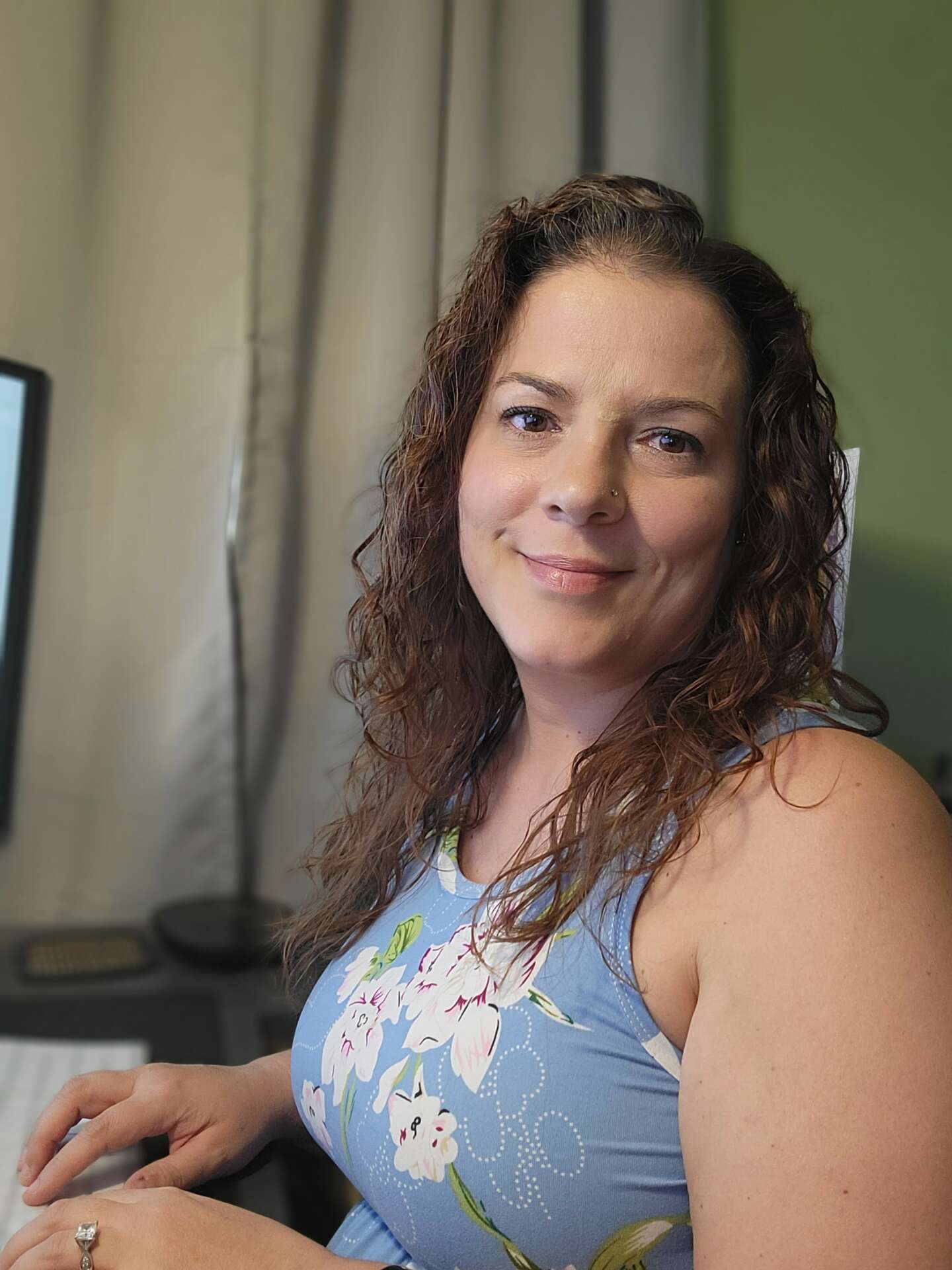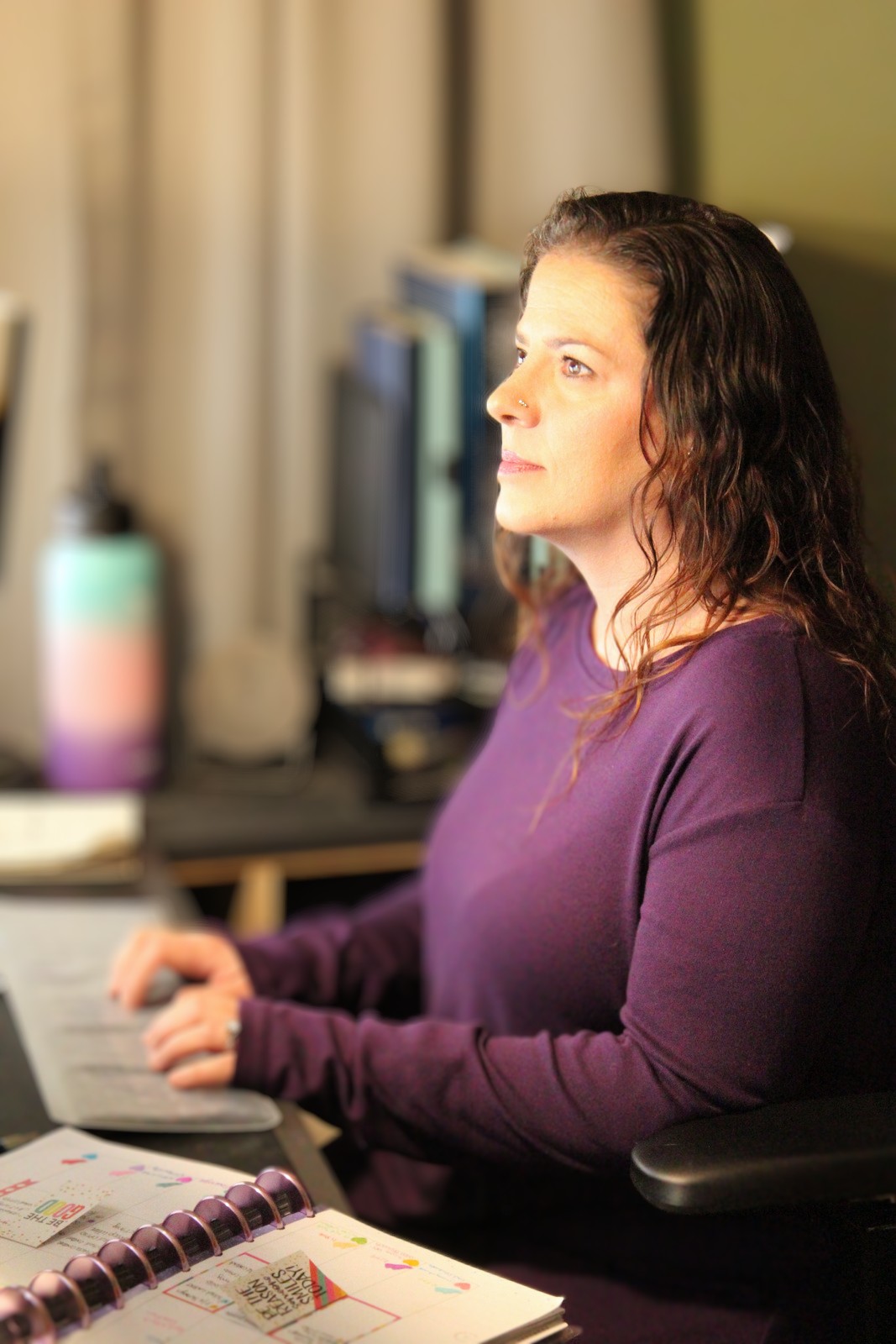Alright – so today we’ve got the honor of introducing you to Kerri Scully. We think you’ll enjoy our conversation, we’ve shared it below.
Alright, Kerri thanks for taking the time to share your stories and insights with us today. How’s you first get into your field – what was your first job in this field?
It was the summer of 2004 after I graduated with my Master’s Degree in Applied Clinical Psychology. I worked full-time all through college and graduate school at low-wage jobs because they were flexible enough to accommodate my class schedule. I was eager to put my education into practice and help others and hopefully earn a little bit more money. I got a taste of what it was like to work as a therapist during my internship in my last year of graduate school and I could not wait to become a full-time therapist. Back in 2004, online applications and job searches were not quite as popular as they are now. I applied to some jobs online and looked up all the mental health agencies within a 30-minute drive of my home. I used snail mail to send a cover letter and resume to about 20 or so different agencies. After about a month, I got two calls for interviews – one from a job I applied to online and one from one of the resumes I had sent out in the mail to random mental health agencies. I really wanted to work with adults, but both jobs involved working with children. I was desperate to get some experience, so I interviewed for both jobs.
My first interview was with the director of a non-profit agency for a position providing in-home therapy to children that had recently been discharged from the hospital for suicidal behavior. The position sounded good, but I did not get a warm vibe from the man I interviewed with, who would also be my direct supervisor. I did get offered the job but asked for some time to think about it since I knew I had another interview lined up.
I next interviewed at the other agency, a non-profit that had a variety of programs working with children and families. The position I was interviewing for was doing in-home therapy with foster children who were at risk of being removed from their foster placement. This job pulled at my heartstrings a bit more than the other. Something about working with foster children was more appealing to me.
I was thrilled to have an interview at this agency but nervous as I prepared for the interview. I wanted to make a good impression and show that I was the right fit for the job. On the day of the interview, I arrived at the agency and was greeted by the receptionist who led me to a small office. The interviewer, a woman named Diane, was already there waiting for me. We began the interview with some basic questions about my background and education, but soon Diane asked me some more challenging questions about my approach to therapy and how I would handle certain situations. I did my best to answer the questions honestly and with confidence, drawing on my education and some of the experiences I had gained through my internship. Diane listened attentively and asked some follow-up questions, but overall, I felt that the interview went well.
The next day, I got a call asking to schedule a second interview, with the director of the agency. I was excited – that had to be a good sign, right? My second interview was with a woman named Dina. She asked me a few questions, but not many. I felt like it went well, but I really was not sure if I would get the job.
After the interview, I waited anxiously for a few days, hoping for a positive response. Finally, I received a phone call from Diane offering me the job. I was over the moon with excitement and couldn’t wait to start working as a mental health therapist, helping foster children stay in their foster homes.
I was very nervous starting this job, as I did not know much at the time about working with traumatized children. I was also only 24 years old and I worried about working with parents who were much older than me. That was intimidating to me. I ended up really loving the job. Though it was a difficult job, hearing what these children had been through, I truly enjoyed being able to be a trusted adult in the lives of these children who had been let down by so many adults in their lives. I ended up staying at that same agency for 10 years and worked in various different roles before moving on. I made lifelong friends there and had so many valuable experiences in the field. I am so grateful for the experience I had working for that agency and all that I learned. I no longer work with children, but the experiences I had working there started me on my journey to becoming a trauma therapist.



Great, appreciate you sharing that with us. Before we ask you to share more of your insights, can you take a moment to introduce yourself and how you got to where you are today to our readers
I am a Licensed Professional Counselor (LPC) in NJ, an Approved Telehealth Provider in FL, and a Licensed Mental Health Counselor in MA. I own a private practice called Inspired Hearts Counseling. I knew that I wanted to become a therapist in high school. I took an elective psychology class and loved it. I also had experience being in therapy myself and wanted to help others. I was a bit daunted by the amount of schooling I would need and even tried to consider other fields of study that would not require a Master’s Degree, but I kept coming back to counseling and psychology. I graduated with my Master’s Degree back in 2004 and got my first job in the field and have been a therapist ever since. I worked in the non-profit world for about 15 years and then in a school setting for a few years.
I started doing some contracted online therapy work part-time in 2019 and that prompted me to start my own online therapy practice in late 2019. At that time, online therapy was not very popular, so I only envisioned seeing a couple of clients on the side and that I would continue working full-time somewhere else. Then the COVID-19 pandemic hit just a few months later and online therapy was in high demand. I continued to work full-time and see clients in the evenings until 2021 and then decided to take the plunge and quit my full-time job to focus solely on my private practice. It was the best decision I ever made. Having my own practice allows for a better work-life balance, which makes me a better therapist. My practice now has other clinicians as well so that we can serve more people in need of help.
What sets me apart is my ability to connect with my clients and make them feel comfortable. Building rapport and trust in the therapeutic relationship is extremely important and I am able to do that with my clients and help them feel understood. I am also certified in Eye Movement Desensitization and Reprocessing (EDMR) therapy and many clients seek me out specifically for EMDR therapy. I also take professional growth very seriously, attend trainings and conferences annually, and stay current on the most recent research in the field. I work with a variety of mental health conditions, but I specialize in trauma and anxiety. I work mostly with clients with complex trauma from childhood and help them heal from their past experiences so that can live a more fulfilling life.



If you could go back, would you choose the same profession, specialty, etc.?
Along the way, I certainly had moments where I questioned if I could do this work. Going to school and working full-time while taking classes and doing an internship was quite challenging, but I am so glad that I did not give up. It was a long and difficult process, but I would absolutely choose the same profession if I had to go back. I love what I do and am passionate about being able to help people. It is such an honor to be able to be a part of someone’s healing journey. I cannot imagine doing anything else. If I had to do it all over again, the only thing I might do differently is that I probably would have opened my own practice much sooner.


What’s been the most effective strategy for growing your clientele?
I have worked hard to develop a strong online presence through my website and social media accounts. Many of my clients tell me that they sought me out because they felt that my website and social media accounts spoke directly to them. I have also been able to use social media to connect and develop relationships with other mental health therapists and this has been very helpful in building up a referral network. I refer to them when I am full and they do the same.
Contact Info:
- Website: www.inspiredheartscounseling.com
- Instagram: www.instagram.com/inspiredheartscounseling
- Facebook: www.facebook.com/inspiredheartscounseling
- Twitter: www.twitter.com/kerriscullylpc
Image Credits
Kerri Scully


